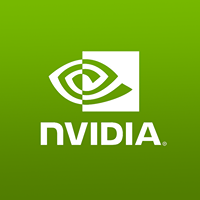Nvidia's Forecast: A Cloud Over the AI Horizon
August 29, 2024, 4:13 pm
Nvidia, the titan of AI chips, has stumbled. Investors, once riding high on the wave of its success, now find themselves grappling with disappointment. The company's latest earnings report, released on August 28, 2024, revealed a forecast that failed to meet the soaring expectations of the market. Shares plummeted by 6% in after-hours trading, dragging down the entire semiconductor sector like a stone in a pond.
The numbers tell a story of growth, yet they fall short of the lofty ambitions set by investors. Nvidia projected a revenue of $32.5 billion for the third quarter, a figure that aligns closely with analysts' expectations but lacks the explosive growth seen in previous quarters. The anticipated gross margin of 75% also fell below market estimates. This was not the triumphant announcement investors had hoped for.
Nvidia's meteoric rise has been fueled by the insatiable demand for its graphics processors, the backbone of generative AI technologies. However, the latest forecast signals a potential slowdown. CEO Jensen Huang acknowledged a delay in the production of the next-generation Blackwell chips, pushing their release to the fourth quarter. While he downplayed the impact, the market reacted swiftly, with Nvidia's stock losing $175 billion in market value.
The ripple effects were felt across the tech landscape. Shares of competitors like Advanced Micro Devices (AMD) and Broadcom fell nearly 4%. Even Asian chipmakers like SK Hynix and Samsung saw declines. The market's reaction was swift and unforgiving, a stark reminder of how quickly fortunes can change in the tech sector.
Investors had been riding a wave of optimism, buoyed by Nvidia's previous performance. The company had consistently surpassed expectations, leading to an unprecedented stock rally. But this time, the bar was set too high. The disappointment was palpable. Analysts noted that even with a revenue growth of 122%, the results were seen as mixed. The high expectations had created a precarious situation, where even a strong performance could lead to a sell-off.
The tech sector is now at a crossroads. Nvidia's forecast has cast a shadow over the AI enthusiasm that has driven stock prices to new heights. The fear is that this could signal a broader slowdown in the generative AI market. Major players like Microsoft, Alphabet, and Amazon are expected to spend over $200 billion on AI infrastructure in 2024. If Nvidia's performance falters, it could lead to a reevaluation of these investments.
Regulatory scrutiny adds another layer of complexity. Nvidia disclosed that it is facing inquiries from regulators in the U.S. and South Korea regarding its sales practices and partnerships. The company has already been under investigation in Europe and the UK. This scrutiny could further dampen investor sentiment, as concerns about anticompetitive practices loom large.
Despite the challenges, Nvidia remains a formidable player in the market. Its adjusted gross margin still outpaces competitors, thanks to the premium pricing of its chips. The data center segment reported a staggering 154% growth, indicating that demand for AI capabilities remains strong. However, the market's reaction suggests that investors are becoming increasingly cautious.
The broader market sentiment is shifting. Historically, September has been a challenging month for stocks, with the S&P 500 averaging a decline of 0.8% since World War II. As investors brace for potential volatility, the focus will be on upcoming economic indicators, including the U.S. employment report. Signs of weakness in the labor market could further unsettle stocks.
Nvidia's situation serves as a cautionary tale. The tech sector thrives on innovation and growth, but it is also susceptible to the whims of investor sentiment. High expectations can lead to dramatic falls when reality doesn't match the dream. The AI revolution is far from over, but Nvidia's latest forecast has thrown a wrench into the gears.
In conclusion, Nvidia's stumble is a reminder of the delicate balance in the tech market. The company remains a leader in AI technology, but the path forward is fraught with uncertainty. Investors must navigate this landscape with caution, as the once-clear skies of AI enthusiasm now appear clouded. The future of Nvidia and the broader tech sector hangs in the balance, waiting for the next signal to guide their course.
The numbers tell a story of growth, yet they fall short of the lofty ambitions set by investors. Nvidia projected a revenue of $32.5 billion for the third quarter, a figure that aligns closely with analysts' expectations but lacks the explosive growth seen in previous quarters. The anticipated gross margin of 75% also fell below market estimates. This was not the triumphant announcement investors had hoped for.
Nvidia's meteoric rise has been fueled by the insatiable demand for its graphics processors, the backbone of generative AI technologies. However, the latest forecast signals a potential slowdown. CEO Jensen Huang acknowledged a delay in the production of the next-generation Blackwell chips, pushing their release to the fourth quarter. While he downplayed the impact, the market reacted swiftly, with Nvidia's stock losing $175 billion in market value.
The ripple effects were felt across the tech landscape. Shares of competitors like Advanced Micro Devices (AMD) and Broadcom fell nearly 4%. Even Asian chipmakers like SK Hynix and Samsung saw declines. The market's reaction was swift and unforgiving, a stark reminder of how quickly fortunes can change in the tech sector.
Investors had been riding a wave of optimism, buoyed by Nvidia's previous performance. The company had consistently surpassed expectations, leading to an unprecedented stock rally. But this time, the bar was set too high. The disappointment was palpable. Analysts noted that even with a revenue growth of 122%, the results were seen as mixed. The high expectations had created a precarious situation, where even a strong performance could lead to a sell-off.
The tech sector is now at a crossroads. Nvidia's forecast has cast a shadow over the AI enthusiasm that has driven stock prices to new heights. The fear is that this could signal a broader slowdown in the generative AI market. Major players like Microsoft, Alphabet, and Amazon are expected to spend over $200 billion on AI infrastructure in 2024. If Nvidia's performance falters, it could lead to a reevaluation of these investments.
Regulatory scrutiny adds another layer of complexity. Nvidia disclosed that it is facing inquiries from regulators in the U.S. and South Korea regarding its sales practices and partnerships. The company has already been under investigation in Europe and the UK. This scrutiny could further dampen investor sentiment, as concerns about anticompetitive practices loom large.
Despite the challenges, Nvidia remains a formidable player in the market. Its adjusted gross margin still outpaces competitors, thanks to the premium pricing of its chips. The data center segment reported a staggering 154% growth, indicating that demand for AI capabilities remains strong. However, the market's reaction suggests that investors are becoming increasingly cautious.
The broader market sentiment is shifting. Historically, September has been a challenging month for stocks, with the S&P 500 averaging a decline of 0.8% since World War II. As investors brace for potential volatility, the focus will be on upcoming economic indicators, including the U.S. employment report. Signs of weakness in the labor market could further unsettle stocks.
Nvidia's situation serves as a cautionary tale. The tech sector thrives on innovation and growth, but it is also susceptible to the whims of investor sentiment. High expectations can lead to dramatic falls when reality doesn't match the dream. The AI revolution is far from over, but Nvidia's latest forecast has thrown a wrench into the gears.
In conclusion, Nvidia's stumble is a reminder of the delicate balance in the tech market. The company remains a leader in AI technology, but the path forward is fraught with uncertainty. Investors must navigate this landscape with caution, as the once-clear skies of AI enthusiasm now appear clouded. The future of Nvidia and the broader tech sector hangs in the balance, waiting for the next signal to guide their course.



